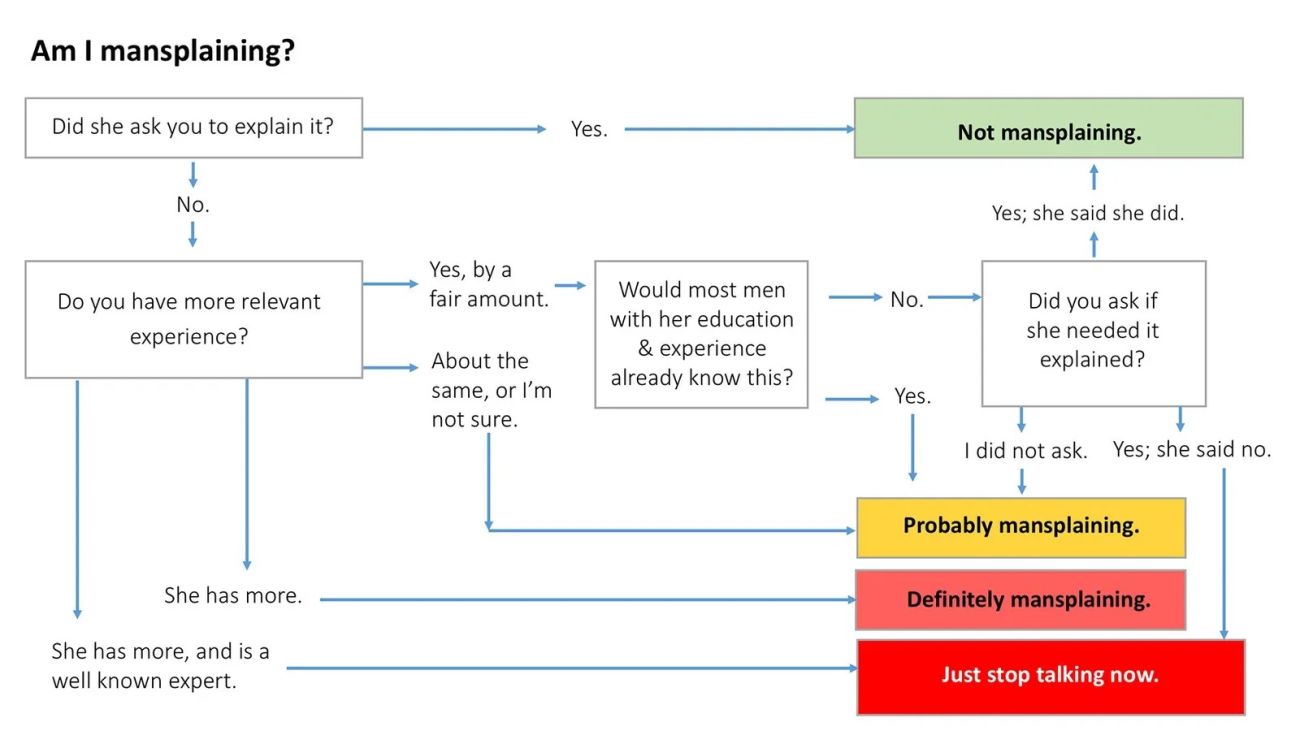MSU study: ‘Speaking while female,’ mansplaining hurt women in workforce


- Researchers at Michigan State University investigate how competence questioning, or mansplaining, affects men and women
- Women are more likely to attribute mansplaining to a gender bias
- After experiencing mansplaining, women often talk less than before the behavior
Women don’t need men to explain to them how irritating — and damaging — mansplaining can be in the workplace. Now, researchers at Michigan State University have completed a study demonstrating the negative impact.
According to a joint study done by MSU and Colorado State University researchers, mansplaining, or when a man explains something to a woman that she probably already understands in a condescending manner, has an adverse effect. The study found that women view these behaviors as being a result of their gender, and are less likely to speak their minds following instances of mansplaining.
Related:
- Michigan restaurants: Raising minimum wage would doom us. Others dubious
- What Michigan can learn from booming Columbus, Ohio
- Can Michigan defuse its population time bomb? See how far we fall short
Caitlin Briggs, a doctoral candidate in the school of social science at MSU, said the study defined mansplaining as “competence questioning behaviors.” In the study, both men and women were guided through a task, and then interacted with an actor that would use these “competence questioning behaviors” when speaking to them about the task. The volunteers filled out a questionnaire at the end of the experiment, describing how they felt about their interactions with the actor.

The results found that women were more likely to feel they were being spoken down to because they were women; men didn’t feel their gender played a role in the interaction.
After the criticism from the actors, women often spoke less than the men, whose behavior didn’t change from before the critical interaction. Women were also more likely to report that they wouldn’t want to work with the actor again.
“The main conclusion was really that women recipients of the condescending behavior had more negative outcomes than men,” Briggs said.
“We found that women were more likely to withdraw their participation after being condescended to.”
These findings aren’t likely to come as a shock to many women. In 2018, in response to questions from her male coworkers, Kim Goodwin, a visual and industrial designer based in San Francisco, Calif., made a chart to lightheartedly help men in the workplace figure out if what they’re doing is mansplaining.

The chart went viral on Twitter, getting around 50,000 retweets and 120,000 likes. Goodwin reported female Twitter users asked to print the chart on business cards, and joked that they’d like to staple it to the foreheads of male coworkers.
Briggs said she hopes the study will prompt discussions of how mansplaining can hurt women in the workforce, and raise awareness among men of the consequences of their behavior.
“Training can be developed,” Briggs told Bridge Michigan. “How do you bring up that you disagree with someone, or you have a concern, without it seeming like you’re questioning their competence, or you’re doubting them.”
For now, the study concludes that women do perceive slights like interruptions or condescension in the workplace in a different way than men. The researchers write in the study that they hope that their findings draw attention to “when and why ‘speaking while female’ can be hard.”
Business Watch
Covering the intersection of business and policy, and informing Michigan employers and workers on the long road back from coronavirus.
- About Business Watch
- Subscribe
- Share tips and questions with Bridge Business Editor Paula Gardner
Thanks to our Business Watch sponsors.
Support Bridge's nonprofit civic journalism. Donate today.
See what new members are saying about why they donated to Bridge Michigan:
- “In order for this information to be accurate and unbiased it must be underwritten by its readers, not by special interests.” - Larry S.
- “Not many other media sources report on the topics Bridge does.” - Susan B.
- “Your journalism is outstanding and rare these days.” - Mark S.
If you want to ensure the future of nonpartisan, nonprofit Michigan journalism, please become a member today. You, too, will be asked why you donated and maybe we'll feature your quote next time!


